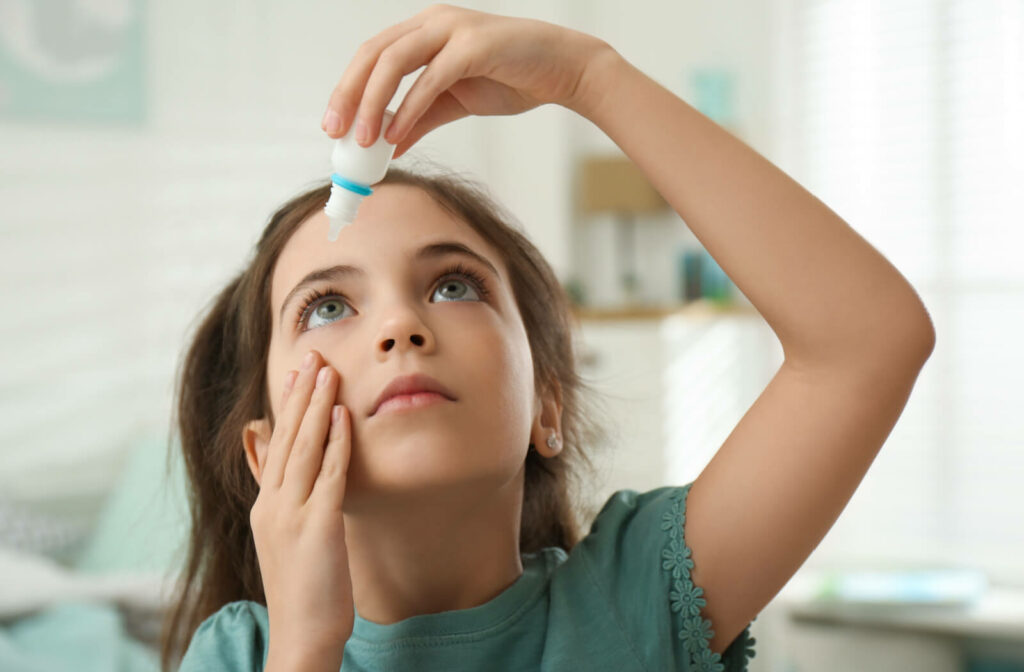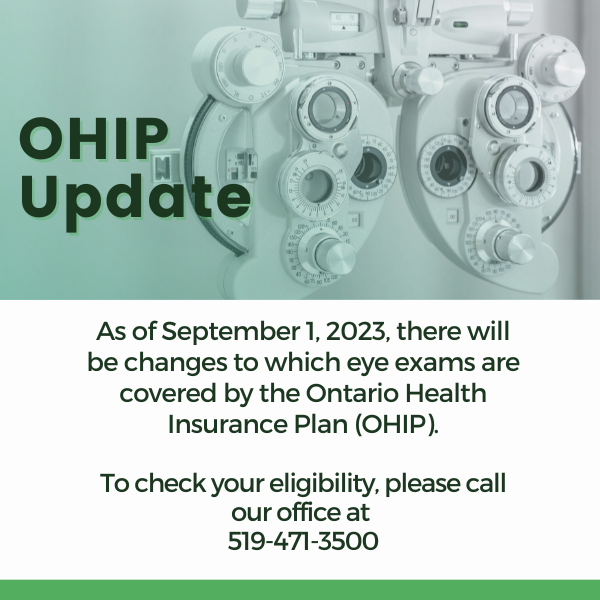Contact lenses are an essential part of most people’s lives. They offer an alternative to eyeglasses, provide clear vision, don’t get in the way when you play sports, and can boost your confidence.
While they provide benefits, contact lenses can also have a drawback; they can dry out your eyes.
When you book a contact lens exam with Byron Optometry, we can help you choose lenses that best fit your lifestyle and needs. Keep reading as we discuss contact lens-related dry eyes, symptoms, specialty contact lenses for dry eyes, and tips to find relief.
What Is Contact Lens-Related Dry Eye
Contact lens-related dry eye is when you experience contact lens discomfort (CLD) from dry eyes. Dry eye or dry eye disease is when your eyes don’t produce enough tears to keep them lubricated.
Anyone can get dry eyes, but you are at a higher risk if you wear contact lenses because they can decrease tear production. Which, if you can imagine, can make wearing contact lenses uncomfortable.
Did you know 10 to 50% of contact lens wearers stop wearing them within 3 years of starting? The common reason is contact lens discomfort from dry eye symptoms, mainly experienced later in the day.
How Do Contact Lenses Affect Your Tears and Lead to Dry Eyes?
Your tear film is made of water, oil, and mucin and your contact lenses sit over this tear film on the front part of your eyes, also called the cornea.
Sufficient and quality tears allow your contact lenses to sit comfortably over the tear film and remain soft to maintain integrity. However, when there is a reduction in the tear film, your contacts can become less flexible.
The result is friction between the contact lenses and the eye’s surface that can cause discomfort, irritation, and sometimes redness. These, among other symptoms, can worsen throughout the day with long hours of contact lens wear.
Symptoms of Contact Lens-Related Dry Eye
Symptoms of dry eyes in contact lens wearers can range from moderate to severe and can lead to less wear time. Common symptoms include:
- Blurry vision
- Eye pain
- Eye strain
- Grittiness or sensation of something in the eye
- Light sensitivity
Contact Lens Options for Dry Eye
There are many underlying causes of dry eyes that your eye doctor can identify during an annual eye exam. But if you start experiencing symptoms or aren’t tolerating your contact lenses well, contact them immediately rather than wait for your appointment.
If dry eye symptoms are caused by your contacts, trying specialty contacts with different materials, sizes, and water content can help:
Soft Contact Lenses
Soft contact lenses are flexible and made of hydrogel, which holds water and allows oxygen to pass through. Disposable soft lenses can work well as they prevent protein buildup that can make your eyes feel drier.
Silicone-based hydrogel contact lenses retain more water than regular hydrogel contacts. Switching to these can reduce dry eye symptoms.
Some high-water content lenses can provide more moisture initially but can also dry out faster. Ask your eye doctor if you can benefit from contact lenses with a lower water content.
Rigid Gas Permeable Contact Lenses
Rigid gas-permeable contact lenses are made of a harder plastic that allows oxygen to pass through. Scleral lenses are rigid gas-permeable lenses that can reduce irritation and symptoms of dry eyes.
Scleral contact lenses are larger in size, measuring 14 to 24 millimetres, and sit over the whites of the eye (sclera). The centre part of the lens vaults over the cornea to create a reservoir of fluid that keeps the eyes moist for longer.

Tips for Dry Eye Relief with Contact Lenses
Changing to a different lens type is a good start to relieving your dry eyes. Here are additional tips to help avoid contact lens-related dry eyes:
- Wear your contact lenses for the recommended time and no longer.
- Wear high-quality prescribed contact lenses.
- Keep your contact lenses clean.
- Change your contact lenses when they expire or as recommended.
- Use rewetting drops or preservative-free artificial tears to keep the eyes moistened. Always consult your eye doctor before using these.
- Have regular eye exams to maintain eye health and vision.
- Have regular contact lens exams and fittings to get the best fit for your eyes.
Contact Lenses for Dry Eye Relief
If you’re a contact lens wearer and suffer from discomfort and dry eye symptoms, contact the eye doctors at Byron Optometry before you give up on them. When you book an appointment, we can help you find the correct fit, type, and lens size to ensure a healthy and comfortable relationship with your contacts.



